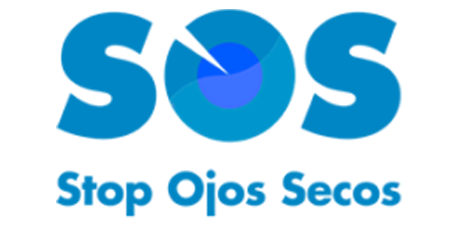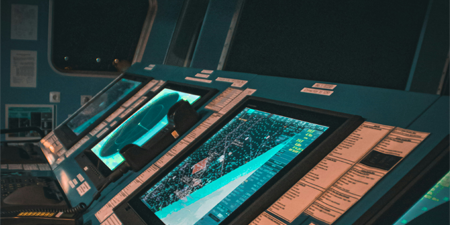APPLIED ELECTRONICS
The Applied Electronics R&D line focuses its work on the design of custom hardware and software electronic solutions, developing and integrating electronic systems based on innovative technologies in computing, data processing, sensing, communications, and control. The development of these solutions includes the design, prototyping, and verification of multilayer printed circuit boards (PCBs) in accordance with requirements for signal and power integrity, electromagnetic compatibility, and safety, as well as the creation of firmware and software to implement their logical functionalities.
Characterized by the diversity of its research areas and a strong commitment to innovation and technology transfer to industry, the group’s research experience spans a wide range of sectors, including automotive, industry, telemedicine, consumer electronics, elevators, agri-food, and defense. This experience provides the ability to design specifically tailored and optimized solutions according to the needs of each case, the application sector, and the applicable regulations.
These capabilities enable the Applied Electronics team to add value at all stages of the development process, from the creation of entirely new designs adapted to the specific needs of each project, to the evolution and refinement of existing prototypes for industrialization, or the optimization and correction of mature developments—ensuring efficiency, functionality, and compliance with required standards.
ITCL’s electronics laboratories are equipped to carry out the various stages involved in the manufacturing of electronic prototypes, from the initial design phase to the fabrication of prototypes or small series in the lab. This capability provides significant added value to the development flow, allowing for the testing and validation of both design stages and final projects, reducing design and validation times, optimizing overall development time, and improving process efficiency.
R&D CAPABILITIES IN APPLIED ELECTRONICS
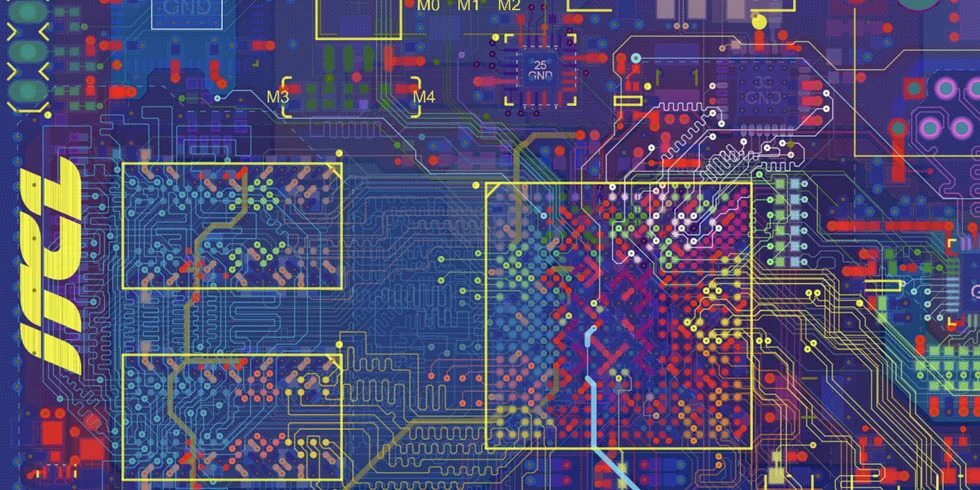
Electronic Design
- Selection of components and processors tailored to each specific case.
- Multilayer electronic and PCB design (from 2 to over 16 layers).
- Rigid, semi-rigid, and flexible PCBs.
- HDI designs compliant with SI, PI, and EMC standards.
- Adaptation to critical applications: high-speed, RF, mixed-signal.
- Support for testing and regulatory certifications.
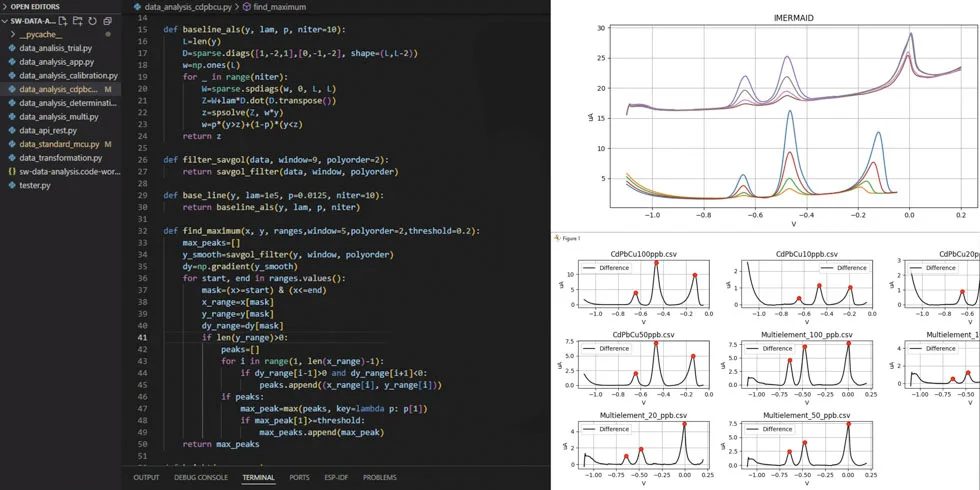
Software and Advanced Algorithms
- Firmware and software design/programming for MCUs, MPUs, SoCs, SoMs, and MPSoMs.
- Software development for embedded systems with operating systems: FreeRTOS, Linux (Yocto, Debian…), Windows.
- Implementation of advanced algorithms in embedded systems: data analytics, AI models, neuromorphic computing, audio/video processing, and real-time streaming.
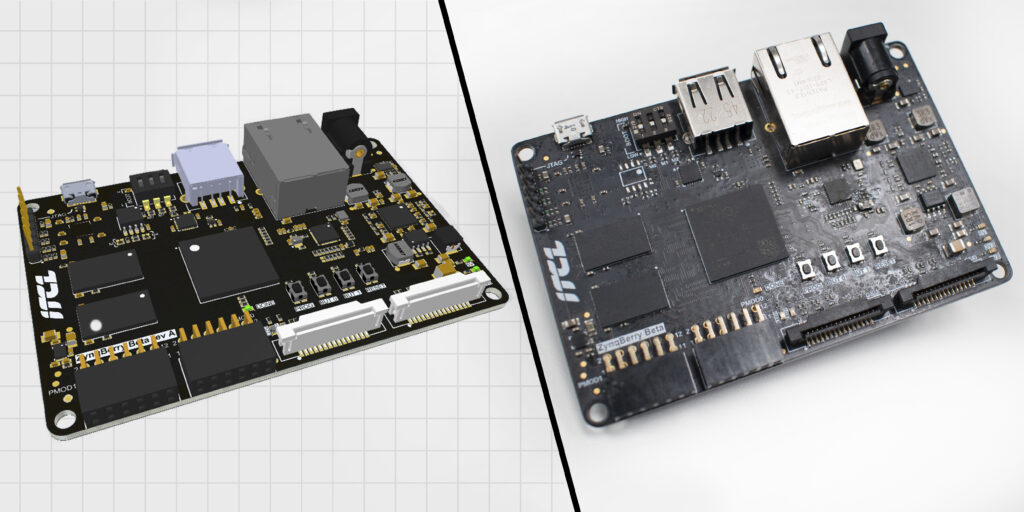
Edge Computing
- Design and prototyping of multiprocessor devices with high local processing capacity for industry, consumer, healthcare, and automotive sectors.
- Solutions based on commercial modules (e.g., Nvidia Jetson, Raspberry Pi Compute Module, etc.).
- Advanced solutions with PCB-level processors (Microchip, Xilinx, STM, NXP, Espressif, etc.)
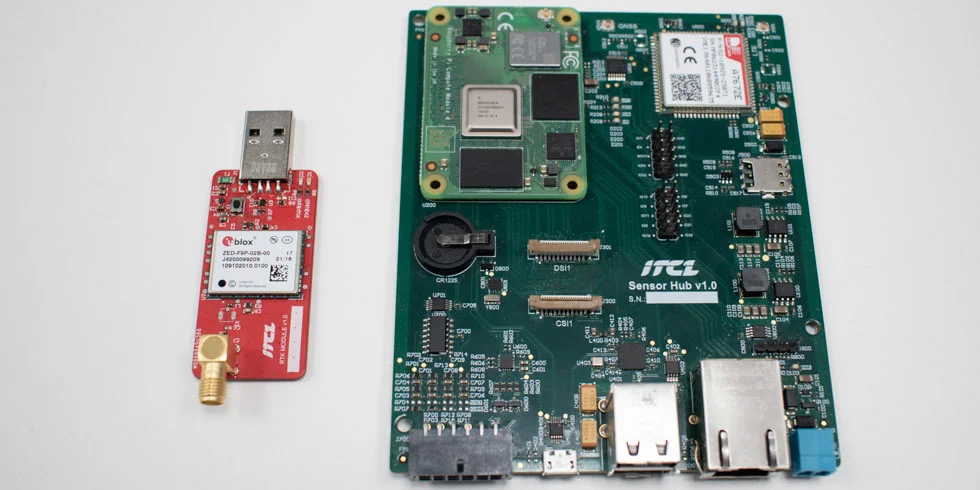
IoT-Industrial IoT
- LPWA devices (LoRa, NB-IoT, LTE-M, LTE Cat 1).
- Custom IoT gateways and integration with existing systems and platforms.
- Design of IoT devices with rechargeable batteries and ultra-low power consumption.
- Monitoring of industrial variables and smart city infrastructure.
- Environmental monitoring.
- Asset tracking and localization (indoor/outdoor).
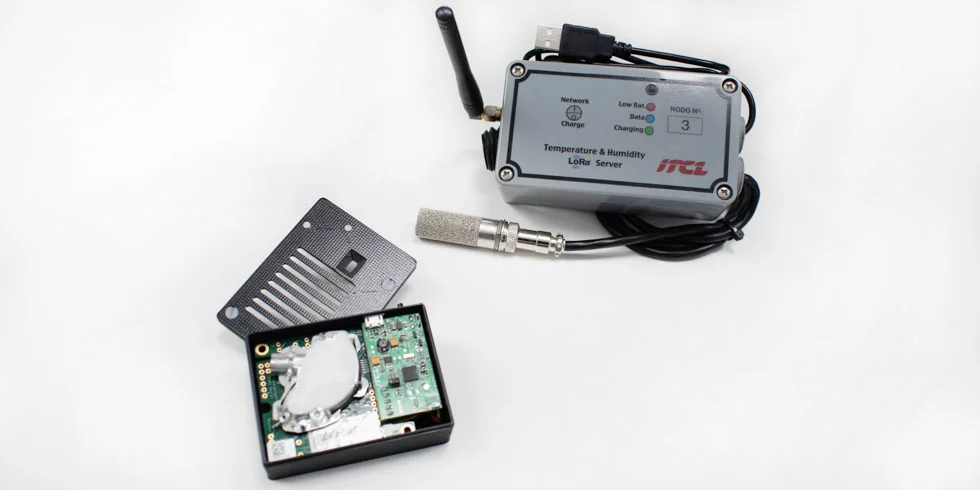
Sensor Systems
- Design of electronics for signal acquisition, conditioning, and conversion from analog and digital sensors.
- Integration of custom or commercial sensors into embedded devices for industry, mobile robotics, IoT, wearables, automotive, agri-food, etc.
- Sensor selection and characterization based on the application.
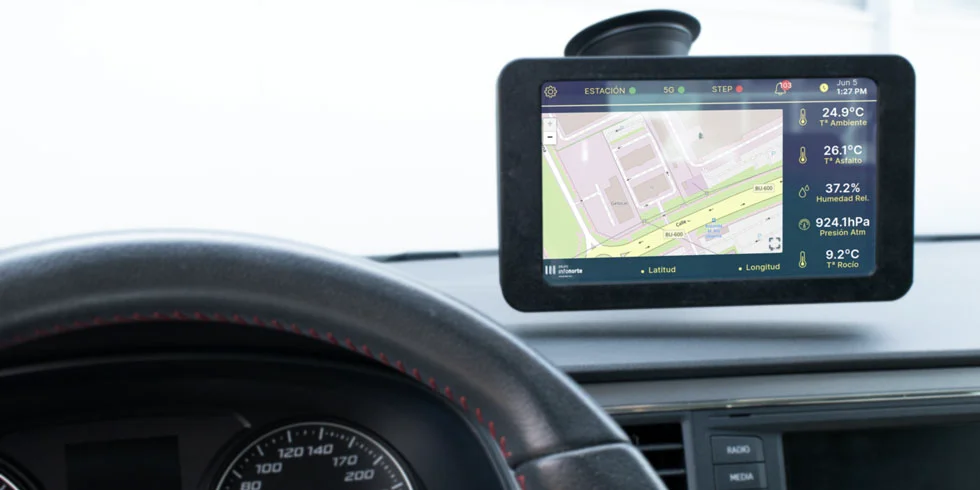
Embedded Solutions
- Design and prototyping of custom and commercial solutions to extend functionalities in mobile robotics, autonomous vehicles, and automotive prototypes.
- Integration of solutions into target systems at both hardware and software levels.
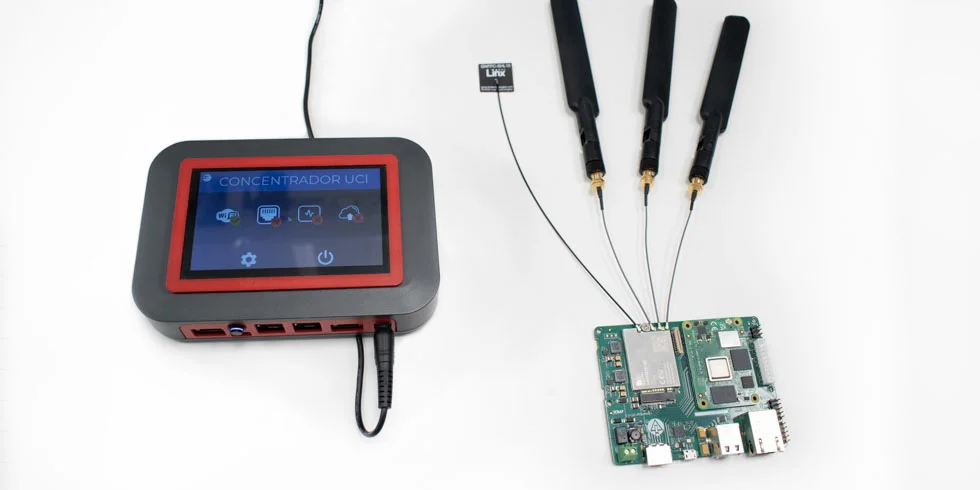
Advanced Connectivity
- Implementation of next-generation wireless technologies:
- 5G
- Redes privadas 5G (MPN)
- MIOTY
- WI-SUN
- Integration of the most suitable wireless technologies for each application:
- Celular (5G/LTE)
- LPWA (NB-IoT, LTE-M, LoRaWAN)
- Wi-Fi
- Bluetooth-Bluetooth Mesh
- Zigbee
- Integration of standard communication buses and interfaces:
- CAN / CAN-FD / CANopen / LIN
- RS-485 / 422 /232
- UART / I2C / SPI
- TCP / IP / UDP / MQTT
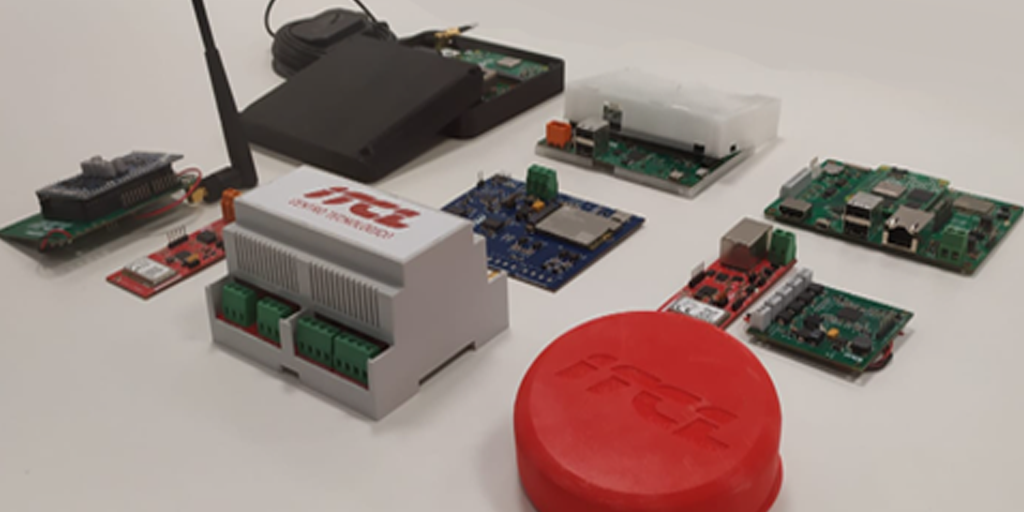
Electronic Prototyping
- In-house manufacturing of prototype electronics, pre-series, and small batches.
- SMD components down to 0402 and fine-pitch packages (e.g., BGA).
- Assembly of prototypes and small production runs during development stages.
OUR TEAM
The department is composed of a multidisciplinary team of hardware, firmware, and telecommunications engineers with extensive experience. They are capable of transforming concepts into fully developed products across a wide range of applications and project types, bringing innovation and a forward-thinking technological approach.
Alberto Navarro Benito
Head of the Applied Electronics R&D Unit at ITCL
A hardware designer with over 14 years of experience in electronic hardware design and embedded systems programming. His areas of expertise include advanced electronic and multilayer PCB design (High-Speed, Signal and Power Integrity, Electromagnetic Compatibility, and Safety), as well as embedded system programming, both bare-metal (C) and OS-based (C, C#, Python, Linux).
He has participated in numerous national and European R&D projects and also coordinates multidisciplinary projects and teams that span various fields such as Electronics, Robotics, Artificial Intelligence, and Intelligent Perception Systems.
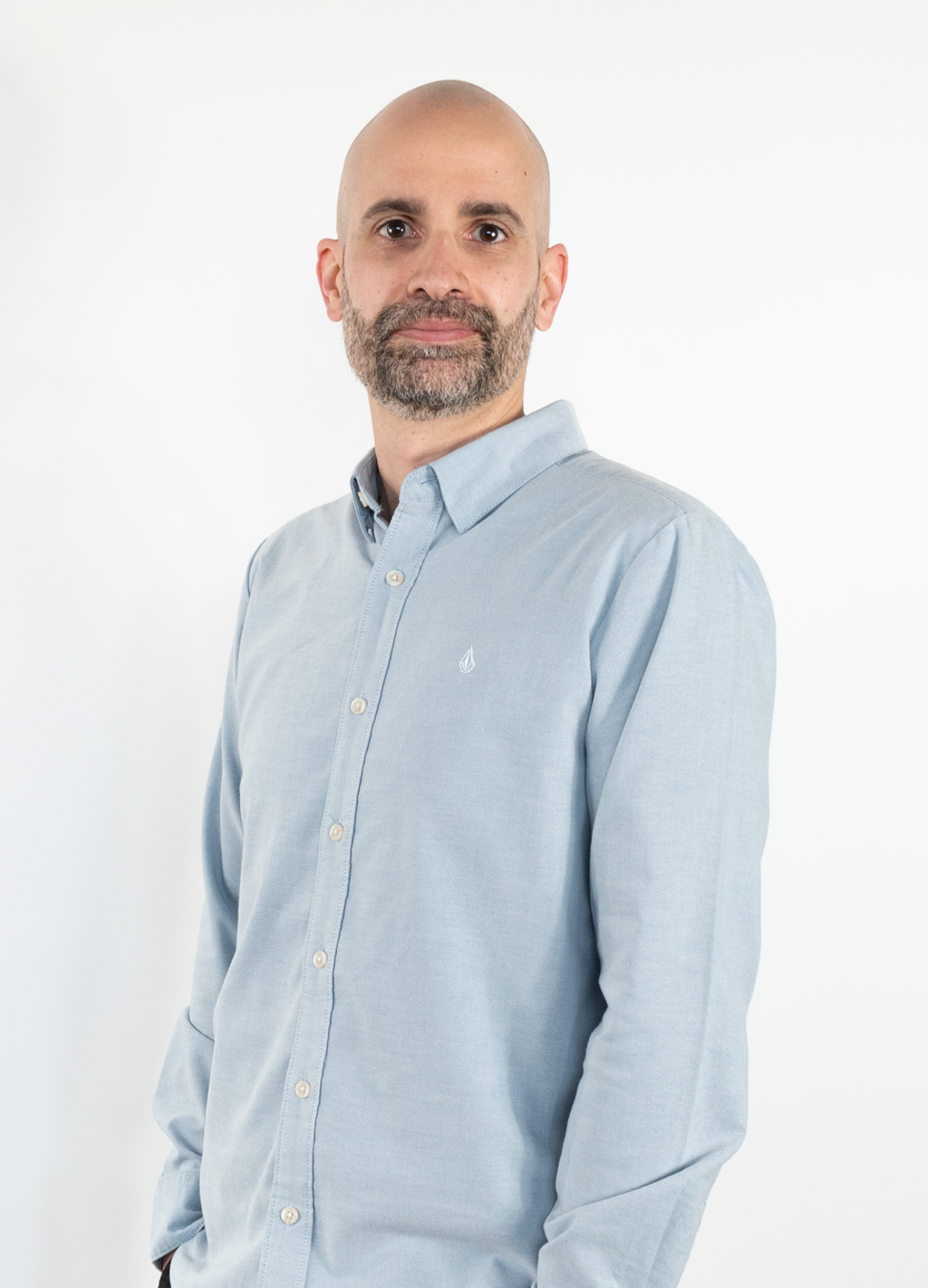
RESEARCH PROJECTS
MONDENEL – Development of commercial device for eye health.
Technological solution capable of preventing or controlling Dry Eye disease by parameterizing the user's environment, taking care of screen exposure times and performing ocular gymnastics.
SOFIA – Enhancing Productivity in the Software Development Industry through the Use of Reliable AI
Research in an ecosystem of applications to enhance productivity in the software development industry through intensive use of reliable AI throughout its lifecycle
Duration: 2024-2026
NAVANTWING – Research on technologies for digital twinning and exploitation in the naval sector.
Naval digital transformation utilizes digital twins and virtual models that enhance efficiency and competitiveness. Despite technological challenges, it is crucial to advance in their implementation to integrate information and overcome limitations.
Duration: April 2023 – June 2025
ALIMTECH – Research, development, and implementation of cross-cutting technological solutions for the agri-food sector
ALIMTECH seeks innovative solutions for global agri-food challenges, prioritizing sustainability and competitiveness through the collaboration of 16 companies.
Duration: 2023-2025
HosmartAI: AI-based Appointment Scheduling
AI-based appointment scheduling is transforming healthcare logistics by increasing patient and healthcare professional satisfaction. HosmartAI addresses hospital appointment management challenges, optimizing the scheduling process trhought advanced artificial...

